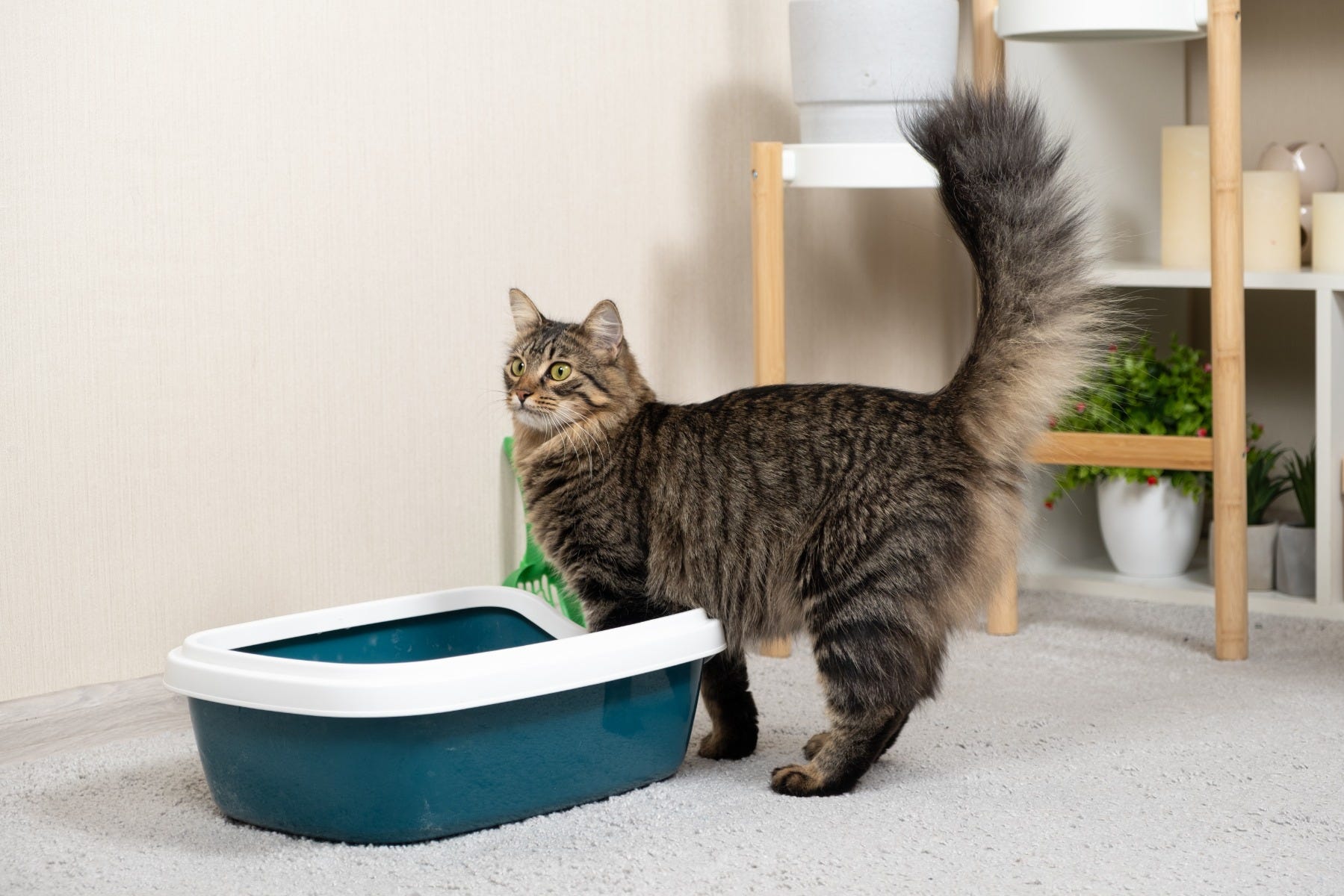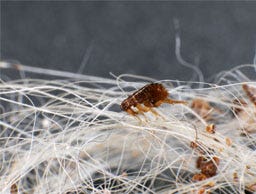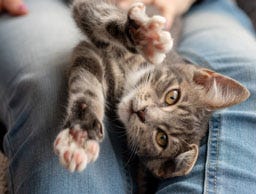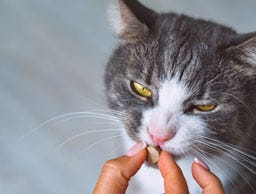Cystitis in Cats
Cats can suffer from many health concerns throughout their lives, one of the most common of which is cystitis. While the cause of this problem isn’t known to vets, multiple theories and a range of treatments are available to help your cat feel better.
Here, we discuss the leading theory of why cats get cystitis and what you can do to help.
What is Feline Idiopathic Cystitis?
Cystitis occurs when the lining of your cat’s bladder becomes inflamed, making it hard, uncomfortable or even painful for your cat to urinate. It’s a common condition that many cats face, and while there is no cure for cystitis in cats, a range of treatments are available to help make your cat more comfortable.
Cystitis is more likely in younger cats, and while cystitis is not as severe as other urinary problems (such as bladder infections or bladder stones), it does present many of the same symptoms and still causes intense discomfort for your cat.
Cystitis in Cats Symptoms
Many urinary conditions in cats share similar symptoms, including:
- Difficulty or pain when passing urine
- Urinating (or attempting to urinate) more frequently
- Urinating outside of the litter box or in strange places
- Overgrooming around the affected area sometimes results in hair loss.
- Blood in urine or pink-ish-looking urine
- Changes in behaviour that may coincide with signs of anxiety in cats.
Please note that if you notice your cat cannot urinate at all (particularly in male cats), then you need to contact your vet immediately. This may be a sign of a blocked bladder, which is extremely painful and potentially life-threatening.
What Causes Cystitis in Cats?
The cause of cystitis in cats is unknown, but vets have noticed a significant relationship between cystitis and stress. When a cat becomes anxious or stressed, it affects its entire body, including its bladder.
Studies have shown that when a cat becomes stressed, the protective lining of their bladder thins in spots, allowing the harsh chemicals in their urine to reach the soft tissue of the bladder. This is what causes the bladder to become inflamed, leading to the symptoms associated with cystitis.
However, it’s important to remember that some cystitis symptoms also correlate with other urinary problems in cats. So, make sure to consult with your vet as soon as you notice something is wrong so you can receive a professional diagnosis.


Cystitis in Cats Treatment at Home
If you think your cat has cystitis, you should contact your vet as soon as possible for a consultation, where they will confirm if your cat has cystitis or something else. They will also prescribe necessary treatments for your cat as well as advise you on changes you can make to help make things easier on your cat.
The most common treatment for cystitis in cats is prescription anti-inflammatory medicine, which will be determined by your vet. These will help ease the inflammation in your cat’s bladder and make it less uncomfortable for them to urinate.
You can also take steps to ease your cat's stress to help them through. The best ways to do this include:
Reducing Stress
The best way to ease your cat’s stress is to remove the trigger for their anxiety. If this is quickly done, it can make a huge difference to your cat’s health and well-being.
However, these triggers can sometimes be unavoidable, such as a new addition to the family, building works in or outside the home, bringing home a new pet, or more. In these cases, there are still steps you can take to ease the stress on your cat, including implementing cat calming aids like those produced by FELIWAY.
You can also make some changes to your cat’s environment to help make things easier for them, such as offering them more places to hide, higher spots to sit, and moving their bowls or litter trays away from the source of their stress (such as other pets, people, or loud noises).
Increasing Water Intake
Ensuring your cat is drinking enough is an important part of cat ownership regardless, but for those with urinary issues, it’s essential. There are multiple ways you can up your cat’s water intake, including:
- Providing multiple water bowls or a water fountain
- Feeding more wet food as it has a higher moisture content than dry food.
Offering your cat hydrating supplements like the Purina Pro Plan Hydra Care Hydration Supplement for Cats.
Urinary Supplements for Cats
You can always give your cat a little more support with their urinary issues by adding cat urinary supplements to their daily meal. Many of these supplements are formulated to be easy to administer and improve your cat’s overall urinary health, making them great for cats who struggle with urinary issues.
Having a urinary supplement in your cat’s diet can also help to reduce the likelihood of the cystitis returning, as it can often do in cats. If you want to tackle your cat’s cystitis head-on, then why not try the FELIWAY Cystease capsules for your cat, which are specifically made to tackle both urinary problems and stress in cats, giving their cystitis recovery that extra boost?
Cystitis can be incredibly stressful for both your cat and yourself, so we hope this guide has given you the tools to recognise the signs so you can get your cat the help they need and how to manage the situation at home.
At Pet Drugs Online, we care about your pet’s health, which is why we offer only the best supplements on the market, including our great range of urinary supplements for cats. If you want to improve your cat’s overall health and well-being, check out the full range below.


This post is an opinion and should only be used as a guide. You should discuss any change to your pet’s care or lifestyle thoroughly with your vet before starting any program or treatment.












































